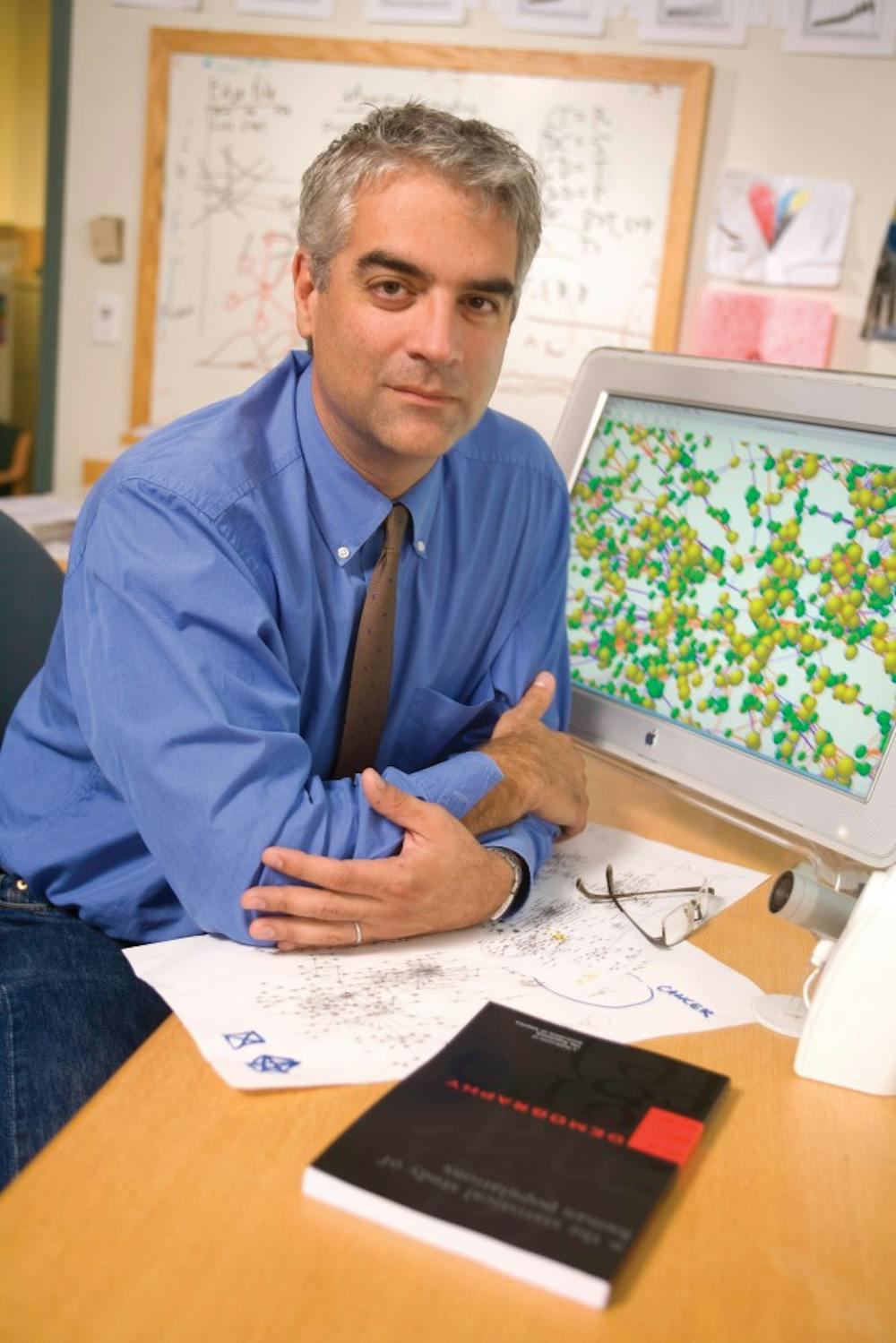The Yale University faculty masters whose words sparked the #WeAreYale movement have intimate ties to Penn.
Before becoming residential faculty masters of Yale’s Silliman College, professor Nicholas Christakis and his wife Erika Christakis were educated at Penn.
Nicholas Christakis, a renowned sociologist and physician, completed his residency in internal medicine at the University of Pennsylvania Health System in 1991. He then began his graduate studies in sociology, earning a master’s degree from the College of Arts and Sciences in 1992 and a doctorate in 1995.
Meanwhile, Erika Christakis, a childhood education and pedagogy expert, earned one of her three master’s degrees from the Annenberg School for Communication in 1993.
The couple made headlines early this month when Erika Christakis sent an email criticizing top-down guidelines from Yale administrators discouraging culturally-appropriated Halloween costumes. The email sparked enormous controversy, with many Yale students calling for the couple’s dismissal and removal from Yale’s campus. Videos of emotionally-charged students addressing Nicholas Christakis, who has so-far stood by his wife, in the Silliman courtyard quickly went viral.
The incident was one of several recent cases of perceived racial and cultural insensitivity on college campuses that prompted demonstrations at universities nationwide, including a march in University City led by Students Organizing for Unity and Liberation and other Penn student groups.
Nicholas Christakis, who taught at the University of Chicago and Harvard University before joining Yale’s faculty in 2013, was already breaking ground as a researcher during his time as a Penn student. In 1991, he was selected for the prestigious Robert Wood Johnson Clinical Scholars Program from Penn, where he worked under now-retired sociology professor Renee Fox. Two years later, Christakis received a National Institute of Health fellowship for research in both Penn Med’s Division of General Internal Medicine and Penn’s sociology department, according to his curriculum vitae.
One of his projects from these years examined how doctors’ biases influence the exact medical procedures they follow when they decide to take a patient off life support. Christakis conducted the study, published in September 1993, with bioethicist and Penn professor David Asch, who teaches in Wharton’s Health Care Management Department.
“Physicians are making decisions in many cases that seem to reflect their own personal views about things that are largely irrelevant to the case at hand,” Asch told the Philadelphia Inquirer of his and Christakis’ research in 1993.
Since graduating from Penn, Christakis has returned several times to give various academic presentations, according to his curriculum vitae. In 1999, he gave a talk on physician anxiety as part of a conference honoring his mentor, Fox. The following year, he gave another talk titled “Death Foretold: Prophecy and Prognosis in Medical Care” at Penn Med’s Leonard Davis Institute on Locust Walk.
More recently, he spoke at the Annenberg School in 2010 about the role of social networks in understanding healthcare and in 2012 at an event titled “Social Network Structure and Function Across Space and Time” as part of the Penn Sociology Colloquium Series, according to the Annenberg School and Sociology Department’s websites.
Neither Nicholas nor Erika Christakis could be reached for comment by press time.
The Daily Pennsylvanian is an independent, student-run newspaper. Please consider making a donation to support the coverage that shapes the University. Your generosity ensures a future of strong journalism at Penn.
DonatePlease note All comments are eligible for publication in The Daily Pennsylvanian.








